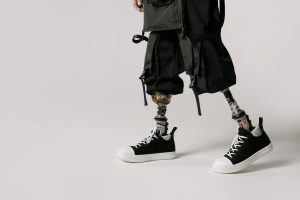Traveling With Disabilities: Tips and Accessibility Guides
For many individuals with disabilities, traveling can bring about unique challenges and obstacles. However, with the rise of accessible travel and accommodations, exploring the world is becoming increasingly possible for people of all abilities. From transportation considerations to sightseeing tips, there are many ways that individuals with disabilities can enhance their travel experience. In this article, we’ll discuss various tips and accessibility guides for traveling with disabilities, making the journey smoother and more enjoyable.
Choose Your Destination Wisely
The first step in planning a trip for individuals with disabilities is to carefully select your destination. While many places are becoming more accessible, some may still present challenges. It’s important to do thorough research on your chosen destination and consider the specific needs and limitations of your disability. Some cities and countries may have more accessible public transportation, building structures, and attractions, making it easier for travelers with disabilities to navigate.
Know Your Rights
Before embarking on your trip, it’s essential to know your rights as a traveler with a disability. The Americans with Disabilities Act (ADA) protects the rights of individuals with disabilities in the United States, ensuring that they have equal access to transportation and public places. It’s essential to be familiar with your rights when traveling to other countries, as they may have different laws and accommodations for people with disabilities.
Consider Your Accommodations
When selecting accommodations for your trip, it’s important to consider your specific needs and limitations. Many hotels and resorts now offer accessible options, including wheelchair-accessible rooms and bathrooms, as well as accommodations for visual and hearing impairments. It’s important to communicate your specific needs with the hotel or resort before booking to ensure that your stay will be comfortable and convenient.
Plan for Transportation
Transportation can be one of the biggest challenges for individuals with disabilities when traveling. However, many options are available to make transportation more accessible. When booking flights, inform the airline of your disability and any accommodations you may need, such as extra assistance or a wheelchair. Many airports also offer services for passengers with disabilities, such as wheelchair rental and accessible restrooms.
Explore Accessible Activities
When planning your itinerary, consider activities that are accessible for individuals with disabilities. Many popular attractions and landmarks now offer wheelchair ramps and other accommodations for people with mobility impairments. There are also various specialized tours and activities designed specifically for individuals with disabilities, providing unique and unforgettable experiences.
Don’t Be Afraid to Ask for Assistance
While traveling, don’t hesitate to ask for assistance when needed. Many individuals and businesses are willing to help accommodate people with disabilities, such as providing a wheelchair or arranging accessible transportation. It’s important to communicate your needs and ask for help when necessary, making your travel experience smoother and more enjoyable.
Be Prepared for Emergencies
It’s essential to anticipate potential emergencies and prepare accordingly. For individuals with disabilities, this may mean bringing extra medication or medical equipment, as well as having a plan in place for emergencies. It’s also important to research emergency services at your destination and have a way to communicate in case of an emergency.
Travel with a Companion
Having a travel companion can be a great support and source of help for individuals with disabilities. This could be a family member, friend, or hired caregiver. Traveling with a companion can provide peace of mind and assistance with tasks such as navigating, carrying luggage, and handling emergencies.
Overall, with the right preparation and accommodations, traveling with disabilities can be a truly rewarding experience. By following these tips and accessibility guides, individuals with disabilities can open themselves up to a world of possibilities and create unforgettable memories while exploring the world.










